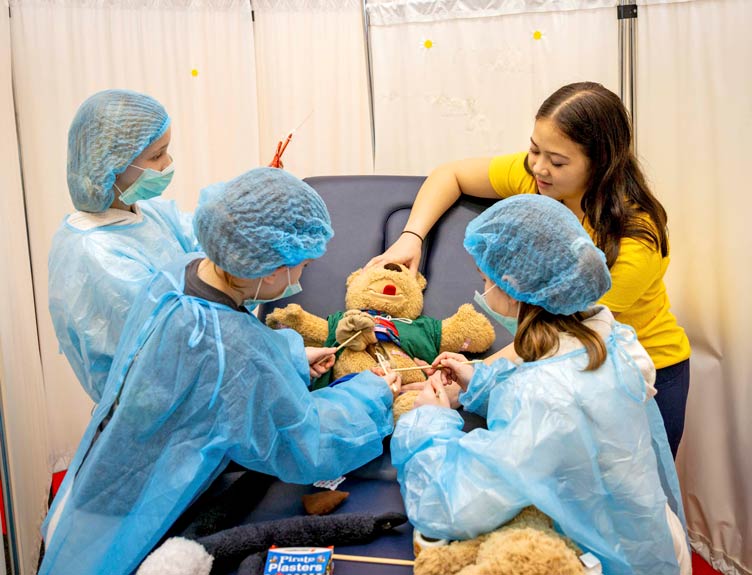RCSI’s Research Summer School invites students to explore a future in cutting-edge healthcare research
RCSI University of Medicine and Heath Sciences' Research Summer School began this week, with over 235 undergraduate students taking part.
The RCSI Research Summer School provides undergraduate students with the unique opportunity to develop their core research skills under the supervision of RCSI’s academic and research experts. The programme offers students a glimpse into the impactful research conducted at RCSI, inspiring them to consider a career in the field.
Now in its 15th year, the Research Summer School has taken on its largest cohort of undergraduate students to date. Over an eight-week period, students will explore diverse areas of research through a comprehensive programme, building on their fundamental research skills.
This cohort of participating students will undertake hands-on research under the supervision of RCSI principal investigators and their teams. Research topics span a wide variety of disciplines, including biochemistry, molecular biology, clinical microbiology and infection, immunology, neurosciences, animal modelling, physiology, pharmacy practice, population health and delivery of health services.
Students will gain vital practical experience in project management, sustainable research, including the My Green Lab certification, simulation workshops, bioinformatics, computational modelling, scientific writing and presentation, core laboratory procedures as well as best practice for patient-focused research.
Learnings into practice
As always, there will be a particular focus on professional development as the RSS programme includes career-orientated activities such as the ‘Career Pathways in Healthcare, Research and Industry’ workshop. The programme will highlight the various career pathways for research, including industry opportunities or the Irish Clinical Academic Training (ICAT) Programme, RCSI’s Strategic Academic Recruitment (StAR) MD programme, or the intercalated opportunities for postgraduate studies.
Also, a Mental Health First Aid Training module will be offered again this year as part of the summer programme. This was originally established under the Student Engagement and Partnership (StEP) programme, in response to students who expressed the need to develop their skills in this area.
The annual Student Innovation Challenge, coordinated by Dr Aoife Gallagher, at the RCSI’s Office of Research and Innovation in collaboration with Dr Shona Pfeiffer, (Deputy Director of the Research Summer School) allows students to put what they have learned into practice. Students are tasked with developing research solutions for real-life healthcare challenges, which are set by RCSI-associated clinicians. Participants have several weeks to develop innovative research solutions before presenting their work to a panel of health innovation and venture capital judges at the pitch event at the end of the month.
A growing interest
Deputy Vice Chancellor for Academic Affairs at RCSI, Professor Tracy Robson commented on the programme: “The Research Summer School allows our students to develop vital biomedical and patient-focused research skills that will stand to them throughout their undergraduate degree. This innovative programme gives participants a glimpse into the cutting edge and impactful work carried out by RCSI’s world leading academic researchers and inspires students to pursue a career in healthcare research.”
Dr Niall Stevens, Senior Lecturer and Director of the Research Summer School, added: “It is a privilege to run the Research Summer School each year. The diverse programme is designed to help students develop their practical research skills and gain a comprehensive insight into practical research procedures. As director of the programme, it's very encouraging to see a growing interest in research and innovation amongst health professional and science students each year.”
The programme is supported by RCSI Alumni and friends as well as RCSI industry and corporate partners including Pfizer, GSK, Medical Protection Society (MPS), Perrigo and PEI.



